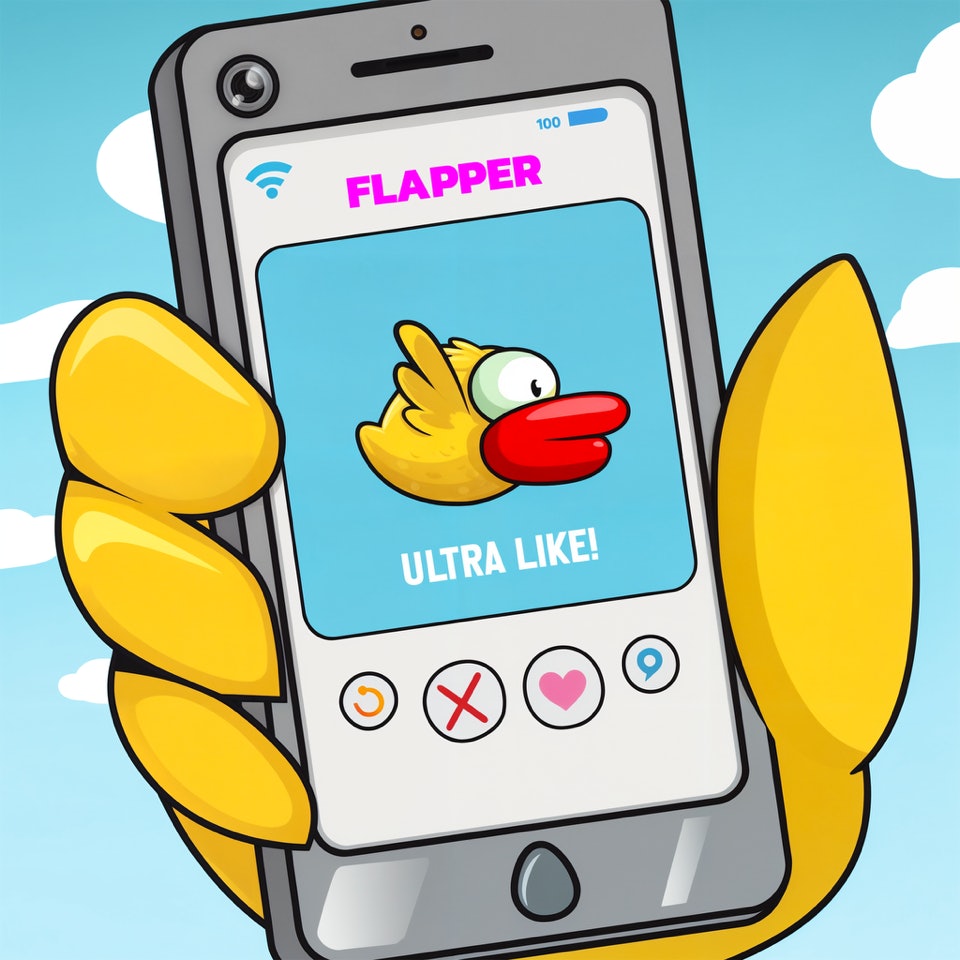
Remember Flappy Bird? If you were playing mobile games in 2013, you almost certainly do, as the free, ad-supported game by a solo developer quickly became a phenomenon before disappearing from app stores just as fast. Now, anyone who missed its brief reign or just wants another shot at it will get the chance to play a new version of Flappy Bird coming later this year. But some critical changes to the game and the reason its original creator doesn’t seem to be involved might be enough to sour the excitement of the retro revival.
The new Flappy Bird was announced today by The Flappy Bird Foundation, which describes itself as “a new team of passionate fans committed to sharing the game with the world.” The group has acquired Flappy Bird’s trademark and the trademark for Piou Piou vs. Cactus, which the original game was either inspired by or shamelessly ripped, depending on who you ask, and it’s preparing to release an expanded version of the mobile hit. Flappy Bird is set to release on iOS and Android in 2025, but will hit other, unspecified platforms in 2024.
The Flappy Bird Foundation did not immediately respond to Inverse’s request for comment.
According to The Flappy Bird Foundation, the new release will include “new game modes, characters, progression, and massive multiplayer challenges.” The game’s website reveals that some of those new additions will be an easy mode and a mode where players have to launch their character through basketball hoops, along with Flappy Bird Rivals, a 99-player mode seemingly based on similar battle royale versions of other games like Tetris 99.
So, fine, more Flappy Bird seems good. But other aspects of the new release raise questions that might have less exciting answers. Along with updated “progression,” the Flappy Bird announcement mentions that the new release will “revamp the game’s ecosystem.” Those seemingly innocuous phrases likely suggest that the new Flappy Bird will include some form of microtransactions, unlike the original game, which was entirely supported by ads. Footage of the game also shows an interface displaying the player’s number of diamonds, which may indicate a premium in-game currency.
No one likes microtransactions, but they seem especially dark in the context of Flappy Bird. Not long after it found global success, the original Flappy Bird was taken down by its creator, Dong Nguyen, who says he made the decision because its design could potentially be harmful to some players.

“Flappy Bird was designed to play in a few minutes when you are relaxed,” Nguyen told Forbes in February 2014. “But it happened to become an addictive product. I think it has become a problem. To solve that problem, it's best to take down Flappy Bird. It's gone forever."
It’s also worth noting that Nguyen received heavy criticism for allegedly copying aspects of the earlier mobile game Piou Piou vs. Cactus, which may have played into his decision to pull Flappy Bird from stores.
The creator of Piou Piou vs. Cactus is involved with The Flappy Bird Foundation’s release, but there’s not a single mention of Nguyen himself in the game’s announcement. Instead, the group has acquired the Flappy Bird trademark from Gametech Holdings LLC. With years having passed since Nguyen released his game, and given his fraught history with it, it might make sense for him to sell the trademark to allow a remake to go forward — but that doesn’t appear to be what happened.

Court documents instead show that Gametech Holdings filed to take over the Flappy Bird trademark in September 2023. A trademark can be considered abandoned if its holder hasn’t used it for long enough and has shown no intention of using it in the future, and that seems to be the case with Nguyen and Flappy Bird. Court filings point to Nguyen’s public statements that he will no longer develop Flappy Bird. Since it had been years since the trademark was used, the court considered it to be abandoned, and awarded it to Gametech, which in turn sold the trademark to The Flappy Bird Foundation.
So Flappy Bird may be coming back, but in a form that seems abhorrent to its original creator, and under circumstances it’s hard to feel anything but put off by. I’m sure plenty of people will have a good time reliving the good old days of the early 2010s with the new release of Flappy Bird, but maybe it would have been better if its story ended with the original game’s deletion.







